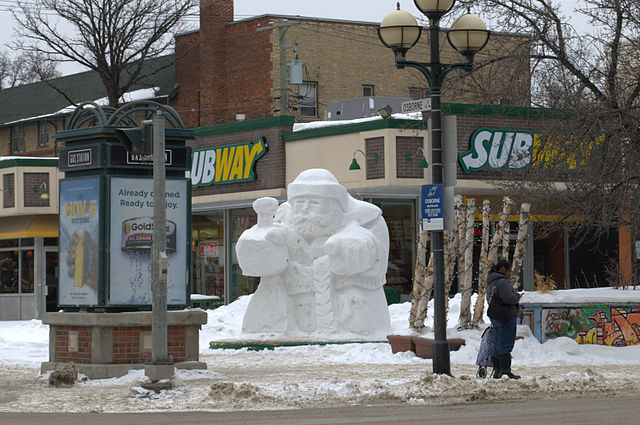Franco-Manitobans are French Canadians or Canadian francophones living in the province of Manitoba. According to the 2016 Canadian Census, 40,975 residents of the province stated that French was their mother tongue. In the same census, 148,810 Manitobans claimed to have either full or partial French ancestry. There are several Franco-Manitoban communities throughout Manitoba, although the majority are based in either the Winnipeg Capital Region or the Eastman Region.
Members of the Red River provisional government established in 1870, which included a number of francophone Métis. The provisional government pressured the Canadian government to guarantee certain Métis and francophone rights in Manitoba.
Exterior of the Supreme Court of Canada building. During the latter half of the 20th century, the supreme court made a number of decisions that guaranteed the linguistic rights of Franco-Manitobans.
An ice sculpture crafted for the Festival du Voyageur, a festival that celebrates Franco-Manitoban culture.
Manitoba Schools Question
The Manitoba Schools Question was a political crisis in the Canadian province of Manitoba that occurred late in the 19th century, attacking publicly-funded separate schools for Roman Catholics and Protestants. The crisis was precipitated by a series of provincial laws passed between 1890 and 1896, and another passed in 1916.
The Wood Lake School, 1896




